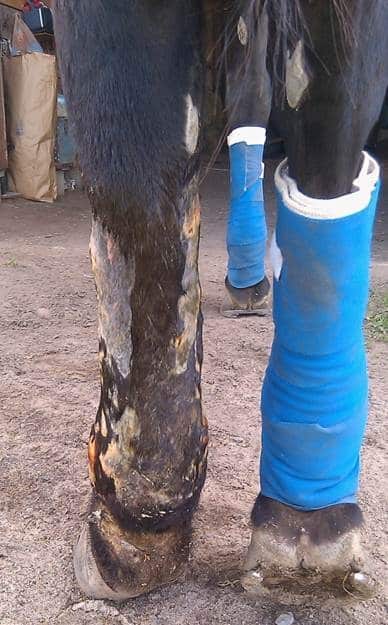Cellulitis Treatment and Prevention in Horses
- Topics: Article, Horse Care, Lower Limb

—Darlene, via e-mail
A. Cellulitis, which is also referred to as phlegmon, is characterized by a severe, deep, suppurative (pus-forming) infection that spreads throughout the layers of tissue located underneath the skin. In some instances the infection can even extend to the skin surface, which results in pus-containing discharge draining from the skin surface. It is the combination of depth and severity of infection that can allow the disease to persist or reoccur. Because of this, cellulitis can be a frustrating disease to treat for both horse owners and veterinarians. In addition the need for prolonged treatment can become expensive.
The disease process starts with a wound that allows bacteria to breach the protective layers of the skin and spread to deeper tissues. Interestingly, the hind legs appear to be more commonly affected than the front legs. Other contributing causes to cellulitis include external parasites (e.g., mites), disease of the lymphatic vessels in the legs, and other unknown factors
Create a free account with TheHorse.com to view this content.
TheHorse.com is home to thousands of free articles about horse health care. In order to access some of our exclusive free content, you must be signed into TheHorse.com.
Start your free account today!
Already have an account?
and continue reading.
Written by:
Eric Renner, DVM
Related Articles
Stay on top of the most recent Horse Health news with















